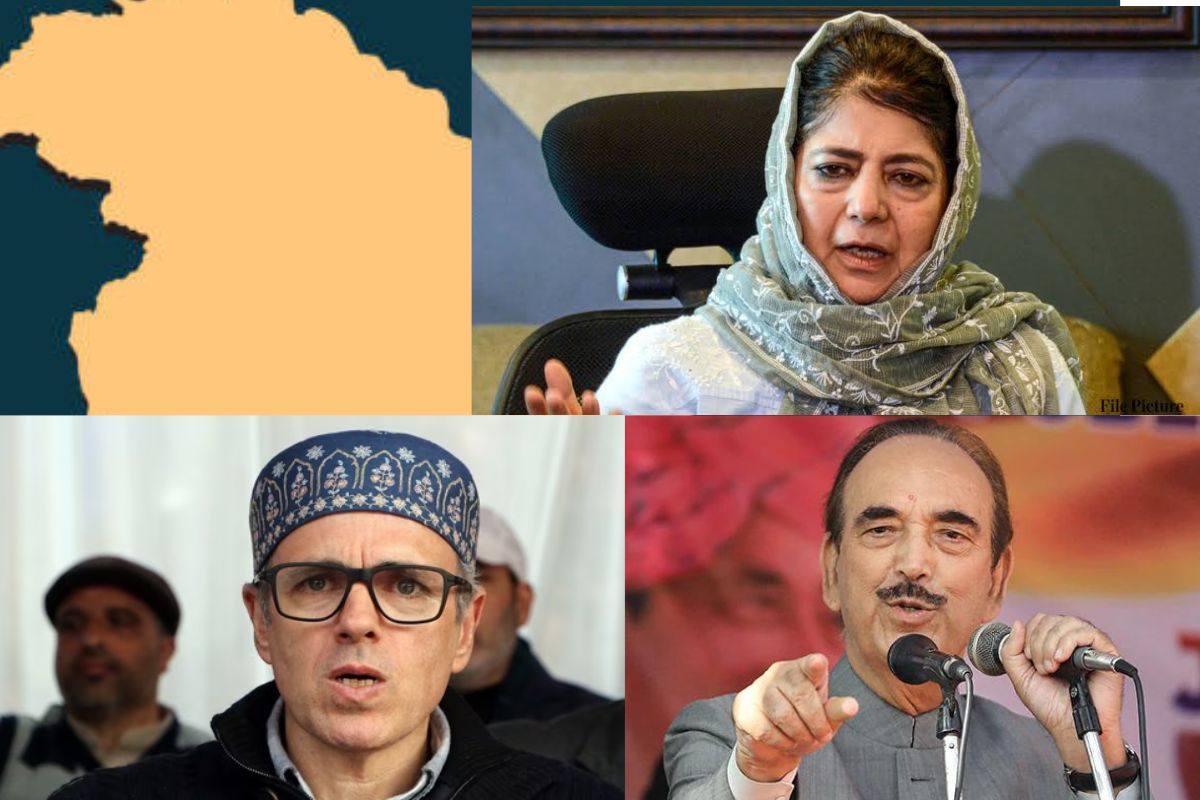NEW DELHI: In a historical first, the Supreme Court passed its verdict in favour of the government’s decision to abrogate Article 370, on Monday, referring to the Union Territory of Jammu and Kashmir as an essential part of the country.
The SC’s judgment has officially ended the special status conferred upon the former state of Jammu and Kashmir, as the Chief Justice DY Chandrachud-led bench held the Constitutional order that abrogated the Article. The five-judge bench also included Justices S K Kaul, Sanjeev Khanna, B R Gavai and Surya Kant.
Delving into similar sentiments, CJI Chandrachud also highlighted that the provisions of Article 370 were always meant to act for a temporary period. He further illustrated that the restoration of the Valley’s statehood should be restored at the earliest, while directing the Election Commission to conduct elections to the legislative assembly by September 30, 2024.
Who said what regarding the SC verdict
Democratic Progressive Azad Party (DPAP) chairperson and former Chief Minister, Ghulam Nabi Azad, called the verdict “sad and unfortunate”, professing his disappointment with the verdict. He told The New Indian, “I am very disappointed with the verdict passed by the SC. The people of Kashmir were waiting intently for the verdict to be delivered but after it having been passed, it has sorely disappointed us.”
FLASH : The New Indian Principal Correspondent @MakhdoomiEmaad speaks to Former Union Minister and President of Demoractic Progressive Azad Party (DPAP) Ghulam Nabi Azad on the #SupremeCourtOfIndia’s verdict on #Article370. pic.twitter.com/k4eLMOtIRZ
— The New Indian (@TheNewIndian_in) December 11, 2023
He added that the “pillars of democracy” — judiciary and executive — had failed the people of J&K and they have no other choice but to abide by the ruling.
On the other hand, Jammu and Kashmir People’s Democratic Party chief and former CM, Mehbooba Mufti took to the microblogging site, X, to exhibit her angst against the ruling. Referring to the ruling as a defeat to the “idea of India”, Mufti said, “The people of Jammu and Kashmir are not going to lose hope or give up. Our fight for honour and dignity will continue regardless. This isn’t the end of the road for us. This is the loss of the idea of India. The hand that you held has been wounded.”
The people of J&K are not going to lose hope or give up. Our fight for honour and dignity will continue regardless. This isn’t the end of the road for us. pic.twitter.com/liRgzK7AT7
— Mehbooba Mufti (@MehboobaMufti) December 11, 2023
Omar Abdullah, National Conference (NC) leader and former CM, took to quoting poet Faiz Ahmed Faiz to express hope amid a period of despair. “Dil na umeed tou nahi. Na kaam hi tou hai. Lambi hai gham ki shaam. Magar shaam hi tou hai.” Abdullah added, “Disappointed but not disheartened. The struggle will continue. It took the BJP decades to reach here. We are also prepared for the long haul.”
Dil na umeed tou nahi ⁰Na kaam hi tou hai ⁰Lambi hai gham ki shaam⁰Magar shaam hi tou hai
— Omar Abdullah (@OmarAbdullah) December 11, 2023
Disappointed but not disheartened. The struggle will continue. It took the BJP decades to reach here. We are also prepared for the long haul. #WeShallOvercome #Article370
— Omar Abdullah (@OmarAbdullah) December 11, 2023
Congress leader and son of Raja Hari Singh, Karan Singh urged a section of the people of J&K to “accept the inevitable” and not hit their “head against the wall”.
“Now my suggestion is that they should turn their energies towards fighting the next elections. That is where the people should now be motivated instead of developing any negativity,” he said.
However, Prime Minister Narendra Modi hailed the SC’s judgement stating that it was not just a legal document, but a “beacon of hope”. “The verdict today is not just a legal judgment; it is a beacon of hope, a promise of a brighter future and a testament to our collective resolve to build a stronger, more united India,” read his tweet on micro-blogging site X.
आर्टिकल 370 हटाने को लेकर सुप्रीम कोर्ट का आज का निर्णय ऐतिहासिक है, जो 5 अगस्त, 2019 को संसद में लिए गए फैसले पर संवैधानिक मुहर लगाता है। इसमें जम्मू, कश्मीर और लद्दाख के हमारे भाई-बहनों के लिए उम्मीद, उन्नति और एकता का एक सशक्त संदेश है। माननीय कोर्ट के इस फैसले ने हमारी…
— Narendra Modi (@narendramodi) December 11, 2023
Bharatiya Janata Party (BJP) President JP Nadda also took to X to celebrate the verdict, calling it a “historic work” done by the PM Modi-led government. On the other hand, Home Minister Amit Shah also highlighted the Indian government’s efforts to stabilise the J&K Valley, alongside the UT of Ladakh.
.@BJP4India welcomes the decision of Hon. Supreme Court pertaining to #Article370. The Constitutional Bench of the Supreme Court has upheld the process, objective, and decision to abrogate Articles 370 and 35A.
Our government, under Hon. PM Shri @narendramodi Ji, has brought…
— Jagat Prakash Nadda (@JPNadda) December 11, 2023
Following the ruling, Justice Sanjay Kaul, a part of the five-judge bench, directed the government to initiate investigations into human rights abuses in the Union Territory.









